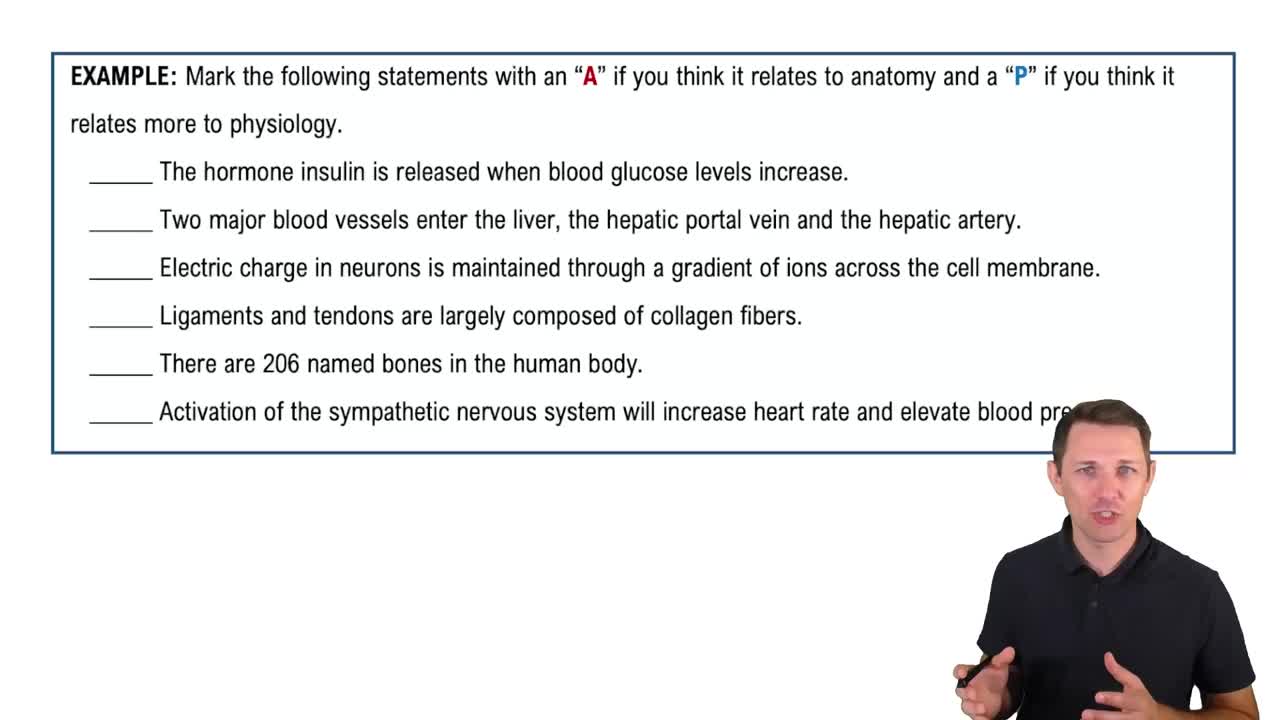What happens to the pH of a solution when hydrogen ions are added?
a. The pH increases.
b. The pH decreases.
c. The pH does not change.
d. The pH does not measure hydrogen ion concentration.
 Erin C. Amerman 2nd Edition
Erin C. Amerman 2nd Edition Ch. 25 Fluid, Electrolyte, and Acid-Base Homeostasis
Ch. 25 Fluid, Electrolyte, and Acid-Base Homeostasis Problem 25.4a
Problem 25.4a Verified step by step guidance
Verified step by step guidance



What happens to the pH of a solution when hydrogen ions are added?
a. The pH increases.
b. The pH decreases.
c. The pH does not change.
d. The pH does not measure hydrogen ion concentration.
Explain how the amount of water in the body affects the concentration of ions and solutes in the ECF.
Ms. Johanssen is a patient in the hospital. The nurse examines her laboratory reports and notices that she has developed hyperkalemia and acidosis over the past several days. On closer examination of her medical chart, the nurse also sees that her physician recently doubled her dose of spironolactone, an aldosterone-blocking diuretic. How does this explain her laboratory findings?
Diabetic ketoacidosis is characterized by an increased level of ketone bodies, which causes metabolic acidosis. A patient in diabetic ketoacidosis will have an altered rate of ventilation. Will the patient be hyperventilating or hypoventilating? How will a change in the rate and depth of ventilation compensate for an acidosis that is metabolic in nature?
A laboratory printout of arterial blood gases indicates that a patient has an increased Pco₂ , decreased pH, and normal bicarbonate ion concentration. Is this patient in acidosis or alkalosis? Is the pH disturbance respiratory or metabolic in nature? Explain your reasoning. How long do you think the patient has had this pH disturbance? (Hint: Look at the bicarbonate ion concentration. What system controls the concentration of bicarbonate ions, and how quickly does it compensate for pH disturbances?)
Fill in the blanks. A cell in a/an ________ fluid will lose water, and a cell in a/an ________ fluid will gain water.